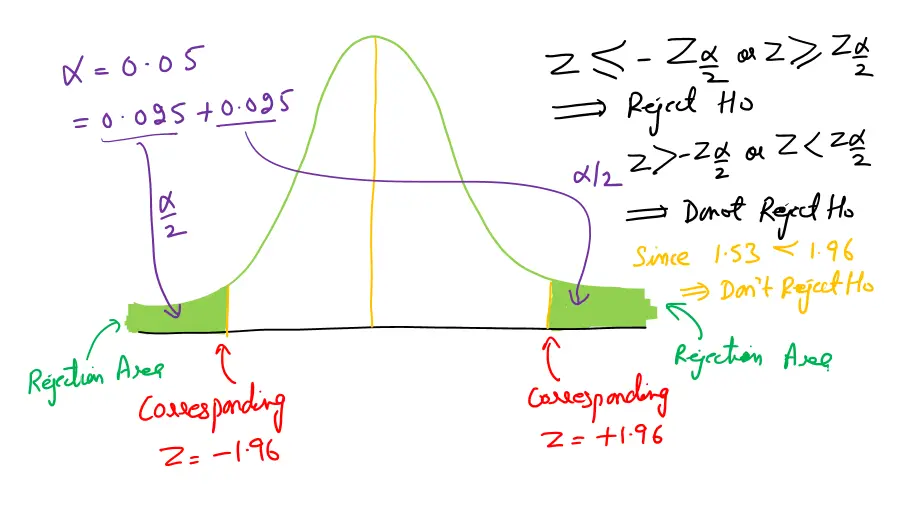Syllabus of UPHESC Assistant Professor Commerce
The syllabus for UPHESC Assistant Professor Commerce is given below.
Age Limit
Upper age limit is 62 years.
Eligibility Criteria
1. A minimum of 55% marks in Post Graduation. There is a relaxation of 5% in marks for candidates belonging to SC, ST, OBC, and PwD categories.
2. Candidates must have qualified for the UGC NET or JRF, or they must hold a PhD degree.
Exam Pattern
Paper 1 (General Studies)- 30 questions with 60 marks
Paper 2 (Commerce subject)- 70 questions with 140 marks
There is no negative marking. There are 30 marks for interview.
Download 2022 notification of UPPSC GDC Assistant Professor Click Here
Syllabus of UPHESC Assistant Professor Commerce
Syllabus of General Studies (Paper 1):
1. Current Events of National and International importance
2. Indian Freedom Struggle
3. Indian Polity
4. Higher Education
5. Computer Knbowledge
6. Research Aptitude
7. People and Environment
8. Teaching Aptitude
Syllabus of Commerce subject (Paper 2): (Download detailed Syllabus Paper 2)
Unit 1: Business Environment and International Business
Concepts and elements of Business Environment:
Economic environment- Economic systems, Economic policies (Monetary and fiscal policies);
Political environment- Role of government in business;
Legal environment- Consumer Protection Act, FEMA;
Sociocultural factors and their influence on business;
Corporate Social Responsibility (CSR),
Policy Environment: Liberalization, Privatization, and Globalization, Second generation reforms, Industrial policy and implementation.
Industrial growth and structural changes.
Scope and importance of International Business;
Globalization and its drivers;
Modes of entry into international business,
Theories of international trade;
Government intervention in international trade;
Tariff and non-tariff barriers;
India’s foreign trade policy,
Foreign direct investment (FDI) and Foreign portfolio investment (FPI);
Types of FDI, Trends in FDI;
India’s FDI policy,
Balance of payments (BOP): Importance and components of BOP,
Regional Economic Integration: Levels of Regional Economic Integration;
Trade creation and diversion effects;
Regional Trade Agreements: European Union (EU), ASEAN, SAARC, NAFTA,
International Economic institutions: IMF, World Bank, UNCTAD, World Trade Organisation (WTO):
Functions and objectives of WTO.
Unit 2: Accounting
Basic accounting principles; concepts and postulates,
Partnership Accounts: Admission, Retirement, Death, Dissolution and Insolvency of partnership firms,
Corporate Accounting:
Issue, forfeiture and reissue of shares;
Liquidation of companies;
Acquisition, merger, amalgamation and reconstruction of companies,
Holding company accounts,
Cost and Management Accounting:
Marginal costing and Break-even analysis;
Standard costing;
Budgetary control;
Process costing;
Activity Based Costing (ABC);
Costing for decision-making;
Life cycle costing, Target costing, Kaizen costing and JIT,
Financial Statements Analysis:
Ratio analysis;
Funds flow Analysis;
Cash flow analysis,
Human Resources Accounting;
Inflation Accounting;
Environmental Accounting,
Indian Accounting Standards and IFRS,
Responsibility Accounting.
Unit 3: Business Economics
Meaning and scope of business economics,
Objectives of business firms,
Demand analysis:
Law of demand;
Elasticity of demand and its measurement;
Relationship between AR and MR,
Consumer behavior:
Utility analysis;
Indifference curve analysis,
Law of Variable Proportions:
Law of Returns to Scale,
Theory of cost:
Short-run and long-run cost curves,
Price determination under different market forms:
Perfect competition;
Monopolistic competition;
Oligopoly- Price leadership model;
Monopoly;
Price discrimination,
Pricing strategies:
Price skimming;
Price penetration;
Peak load pricing.
Unit 4: Business Finance
Scope and sources of finance;
Cost of capital and time value of money,
Capital structure,
Leverages- Operating, Financial & Combined Leverages,
EBIT- EPS Analysis,
Capital budgeting decisions:
Conventional and scientific techniques of capital budgeting analysis,
Working capital management;
Dividend decision: Theories and policies,
Risk and return analysis;
Asset securitization,
Foreign exchange market;
Exchange rate risk and hedging techniques,
International financial markets and instruments:
Euro currency;
GDRs;
ADRs,
International arbitrage;
Multinational capital budgeting,
Portfolio management- CAPM, APT;
Derivatives.
Unit 5: Business Statistics and Research Methods
Measures of central tendency,
Measures of dispersion,
Measures of skewness,
Correlation and regression of two variables,
Association of attributes,
Probability:
Approaches to probability;
Bayes’ theorem,
Probability distributions:
Binomial, Poisson and normal distributions,
Research:
Concept and types;
Research designs,
Data:
Collection and classification of data,
Sampling and estimation:
Concepts;
Methods of sampling – probability and non-probability methods;
Sampling distribution;
Central limit theorem;
Standard error;
Statistical estimation,
Hypothesis testing:
z-test;
t-test;
ANOVA;
Chi-square test;
Rank correlation test.
Unit 6: Business Management and Human Resource Management
Principles and functions of management,
Planning – Objectives, Strategies, Planning process and decision making,
Organization structure:
Formal and informal organizations;
Span of control,
Responsibility and authority:
Delegation of authority and decentralization,
Directing,
Motivation and leadership:
Concept and theories,
Controlling,
Corporate governance and business ethics,
Human resource management:
Concept, role and functions of HRM;
Human resource planning;
Recruitment and selection;
Training and development;
Succession planning,
Compensation management:
Job evaluation;
Incentives and fringe benefits,
Performance appraisal including 360-degree performance appraisal,
Collective bargaining and workers’ participation in management,
Personality:
Perception;
Attitudes;
Emotions;
Group dynamics;
Power and politics;
Conflict and negotiation;
Stress management,
Organizational Culture:
Organizational development and organizational change.
Unit 7: Banking and Financial Institutions
Overview of Indian financial system,
Types of banks:
Commercial banks;
Regional Rural Banks (RRBs);
Foreign banks;
Cooperative banks,
Reserve Bank of India:
Functions;
Role and monetary policy management,
Banking sector reforms in India:
Basel norms;
Risk management;
NPA management,
Financial markets:
Money market;
Capital market;
Government securities market,
Financial Institutions:
Development Finance Institutions (DFIs);
Non-Banking Financial Companies (NBFCs);
Mutual Funds;
Pension Funds,
Financial Regulators in India,
Financial sector reforms including financial inclusion,
Digitisation of banking and other financial services:
Internet banking;
Mobile banking;
Digital payments systems.
Unit 8: Marketing Management
Marketing:
Concept and approaches;
Marketing channels;
Marketing mix;
Strategic marketing planning;
Market segmentation, targeting and positioning,
Product decisions:
Concept;
Product line;
Product mix decisions;
Product life cycle;
New product development,
Pricing decisions:
Factors affecting price determination;
Pricing policies and strategies,
Promotion decisions:
Role of promotion in marketing;
Promotion methods – Advertising;
Personal selling;
Publicity;
Sales promotion tools and techniques;
Promotion mix,
Distribution decisions:
Channels of distribution;
Channel management,
Consumer Behaviour:
Consumer buying process;
Factors influencing consumer buying decisions,
Service marketing,
Trends in marketing:
Social marketing;
Online marketing;
Green marketing;
Direct marketing;
Rural marketing;
CRM.
Unit 9: Legal Aspects of Business
Indian Contract Act, 1872:
Elements of a valid contract;
Capacity of parties;
Free consent;
Discharge of a contract;
Breach of contract and remedies against breach;
Quasi contracts;
Special contracts:
Contracts of indemnity and guarantee;
Contracts of bailment and pledge;
Contracts of agency,
Sale of Goods Act, 1930:
Sale and agreement to sell;
Doctrine of Caveat Emptor;
Rights of unpaid seller and rights of buyer,
Negotiable Instruments Act, 1881:
Types of negotiable instruments;
Negotiation and assignment;
Dishonour and discharge of negotiable instruments,
The Companies Act, 2013:
Nature and kinds of companies;
Company formation;
Management, meetings and winding up of a joint stock company,
Limited Liability Partnership:
Structure and procedure of formation of LLP in India,
The Competition Act, 2002:
Objectives and main provisions,
The Information Technology Act, 2000:
Objectives and main provisions;
Cyber crimes and penalties,
The RTI Act, 2005:
Objectives and main provisions,
Intellectual Property Rights (IPRs):
Patents, trademarks and copyrights;
Emerging issues in intellectual property,
Goods and Services Tax (GST):
Objectives and main provisions;
Benefits of GST;
Implementation mechanism;
Working of dual GST.
Unit 10: Income-tax and Corporate Tax Planning
Income-tax:
Basic concepts;
Residential status and tax incidence;
Exempted incomes;
Agricultural income;
Computation of taxable income under various heads;
Deductions from Gross total income;
Assessment of Individuals;
Clubbing of incomes,
Corporate Tax Planning:
Concepts and significance of corporate tax planning;
Tax avoidance versus tax evasion;
Techniques of corporate tax planning;
Tax considerations in specific business situations:
Make or buy decisions;
Own or lease an asset;
Retain; Renewal or replacement of asset;
Shut down or continue operations,
Deduction and collection of tax at source;
Advance payment of tax;
E-filing of income-tax returns.
Everything about UPHESC Assistant Professor Commerce
UPHESC – Prepare with Human Peritus
UPHESC – Syllabus Analysis
Comparing UPHESC and UGC NET
UPHESC – Exam Pattern
UPHESC – Exam Date
UG NET in Commerce
Contact Us

Email: contact@humanperitus.com
Phone: 9717781110
Address: Human Peritus, Floor 5, Building C, Unitech Cyber Park, Gurgaon, 122002
Depend Completely Upon us
From Start To Finish
Human Peritus is one stop solution for everything, which you need to crack Assistant Professor exam in Commerce subject for HPSC.
- Specializes in Commerce subject
- 1000s of students cracked UGC NET since 2011
- Most trusted guide during preparation journey




